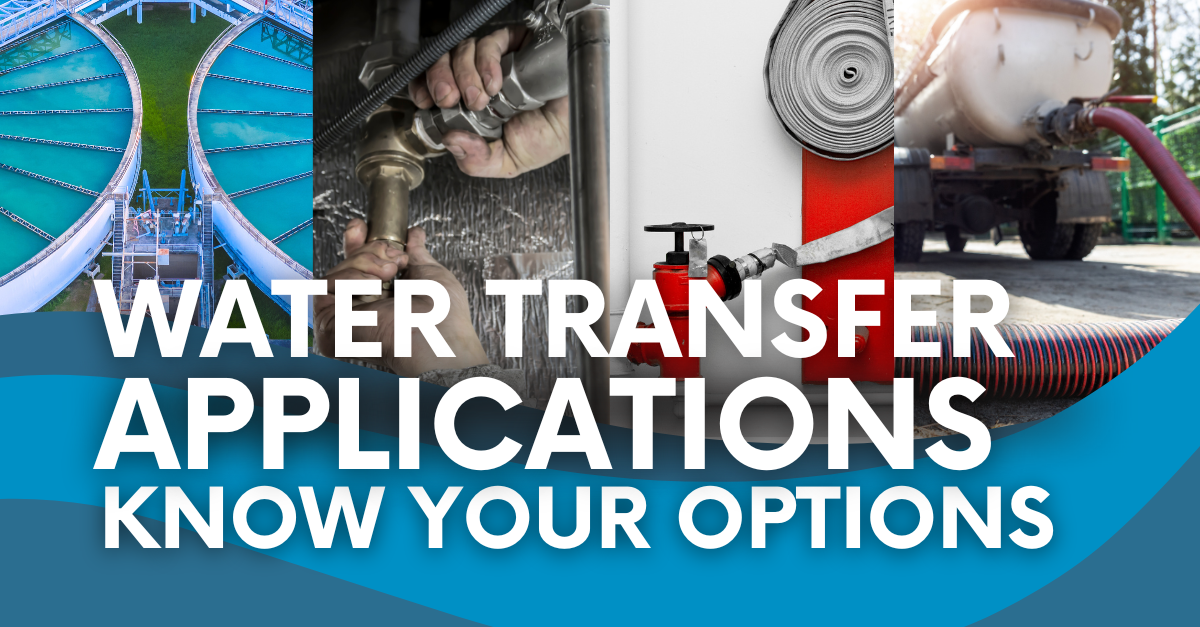Water is one of the most commonly transferred fluids across industries, but that doesn’t mean just any hose or coupling will do. Whether you’re dealing with potable water, irrigation, or industrial water systems, choosing the right components is essential for safety, efficiency, and compliance. Here’s what you need to know.
Compatible Couplings: Versatile and Reliable
To ensure a secure and leak-free connection, the following couplings are commonly used:
- Standard Camlocks: Quick-connect fittings that are easy to use and widely compatible.
- Water Couplings: Designed specifically for water systems, often with features to prevent backflow or contamination.
Recommended Hoses: PVC, Rubber, and Layflat
Each hose type offers unique advantages depending on the application:
- PVC Hoses: Lightweight, cost-effective, and resistant to abrasion. Ideal for general water transfer.
- Rubber Hoses: Durable and flexible, suitable for high-pressure or rugged environments.
- Layflat Hoses: Easy to store and deploy, perfect for temporary setups or large-scale irrigation.
Special Considerations: Safety, Compliance, and Performance
When selecting hoses and couplings for water applications, keep these critical factors in mind:
- WRAS / Potable / Regulation 31 Compliance: Essential for drinking water systems in the UK to ensure materials are safe and non-toxic.
- Flow Rates: Choose hose diameters and coupling types that support your required flow without causing pressure drops.
- Leachables: Ensure materials do not release harmful substances into the water, especially in potable systems.
- STAMP Method: Consider Size, Temperature, Application, Media, and Pressure when selecting hose assemblies. See More HERE
- Bend Radius: Avoid kinking and ensure flexibility by choosing hoses with appropriate bend characteristics.
- Chemical Compatibility: Especially important when using biocides or other water treatment chemicals.
- Phthalate-Free & FDA Compliant: For applications involving human contact or food processing, ensure hoses are free from harmful plasticizers and meet FDA standards.
Water may seem simple, but the systems that move it are anything but. By selecting the right hose and coupling combination—and paying close attention to compliance and performance factors—you can ensure a safe, efficient, and long-lasting water transfer system.
If you need expert advice, contact our team at Action Sealtite for professional assistance by completing the form below or :
📞 Call us: +44 (0)1235 512500
📧 Email us: sales@actionsealtite.com





